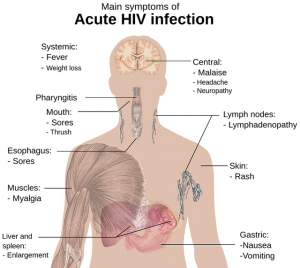HIV infection is associated with a higher risk of tuberculosis and death. Selenium deficiency is associated with an increased risk of HIV infection. Several trials have shown that selenium supplementation of patients with HIV is associated with beneficial outcomes [Muzembo 2022].

Muzembo et al conducted a systematic review of six randomized controlled trials of selenium supplementation of HIV-infected patients. They reached the following conclusions [Muzembo 2022]:
- Daily supplementation with 200 mcg selenium slowed the loss of CD4 cells in HIV-infected patients.
- The length of selenium supplementation and HIV infection studies varied from 9 to 24 months.
- The selenium supplements were well tolerated in all six studies.
- Further investigation of the effects of daily selenium supplementation of HIV-infected patients is warranted.
Note: CD4 cells are a particular type of white blood cells that help the immune system fight infections. CD4 cells are also known as CD4 lymphocytes and helper T cells [MedlinePlus 2022].
If untreated, the HIV infection will destroy many CD4 cells, and the immune system will not be able to fight off opportunistic infections [MedlinePlus 2022].
Conclusion: HIV Infection and selenium supplementation
- Selenium deficiency – serum selenium concentrations below 70 mcg/L – is common in HIV-infected patients [Drain 2007].
- Muzembo et al present evidence that selenium supplementation is associated with slowing the loss of CD4 lymphocyte cells in HIV-infected patients [Muzembo 2022].
- Selenium supplementation helps the immune system fight off opportunistic infections in HIV-infected patients [Muzembo 2022].
- Two small US studies have shown that selenium supplementation is associated with reduced HIV viral load in adults. We need more clinical studies of the effect of selenium supplementation on HIV viral load [Irlam 2010].
- Selenium supplementation is associated with reduced levels of oxidative stress [Guillen 2019].
Sources
Drain PK, Kupka R, Mugusi F, Fawzi WW. Micronutrients in HIV-positive persons receiving highly active antiretroviral therapy. Am J Clin Nutr. 2007;85(2):333-345.
Guillin OM, Vindry C, Ohlmann T, Chavatte L. Selenium, selenoproteins and viral infection. Nutrients. 2019 Sep 4;11(9):2101.
Irlam JH, Visser MM, Rollins NN, Siegfried N. Micronutrient supplementation in children and adults with HIV infection. Cochrane Database Syst Rev. 2010 Dec 8;(12):CD003650.
MedlinePlus. CD4 lymphocyte count. Bethesda (MD): National Library of Medicine, 2022. Available from: https://medlineplus.gov/lab-tests/cd4-lymphocyte-count/
Muzembo BA, Ngatu NR, Januka K, Huang HL, Nattadech C, Suzuki T, Wada K, Ikeda S. Selenium supplementation in HIV-infected individuals: A systematic review of randomized controlled trials. Clin Nutr ESPEN. 2019 Dec;34:1-7.
The information presented in this review article is not intended as medical advice and should not be used as such.
15 December 2022
